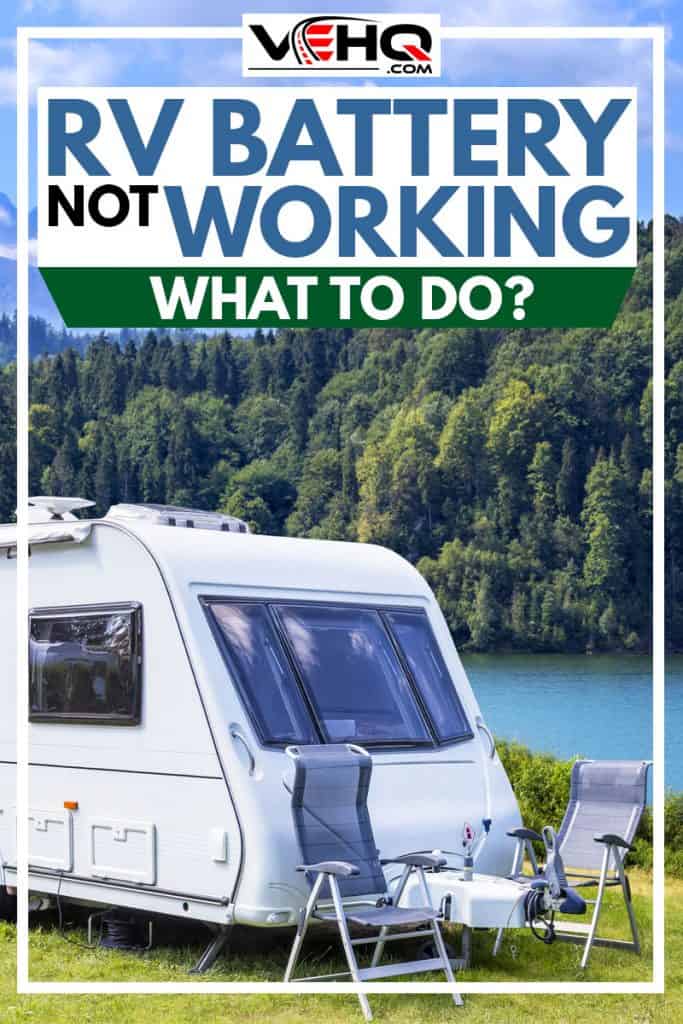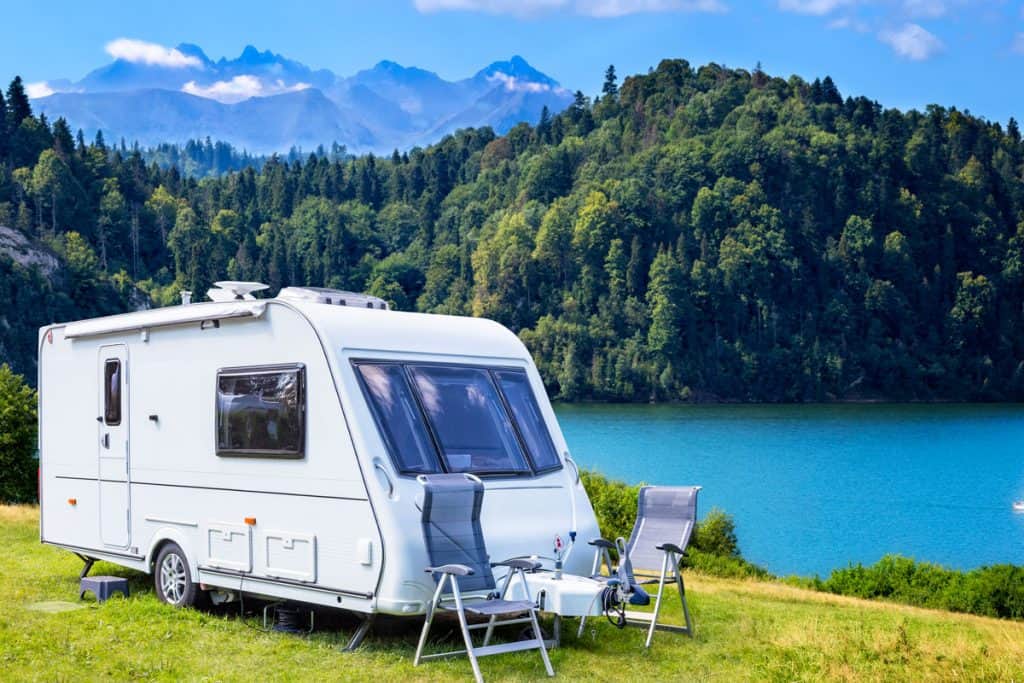 RV'ers rely on their batteries, but it can come with its headaches now and then. RV batteries continuously provide power throughout the RV, regardless of whether the engine is running. As convenient as that is, what happens when you still run into some complications? We checked the main causes for RV battery failure - and what to do when that happens.
RV'ers rely on their batteries, but it can come with its headaches now and then. RV batteries continuously provide power throughout the RV, regardless of whether the engine is running. As convenient as that is, what happens when you still run into some complications? We checked the main causes for RV battery failure - and what to do when that happens.
A few possible reasons your RV battery isn't working properly may include a dead or undercharged battery, loose connections, or power converter problems. To correct these issues, you should try the following:
- Check your connections
- Check your battery voltage using a voltage meter
- Disconnect the battery, then check all wiring for wear or breaks
These are all easy items to identify. Keep reading for more details on what to look for and how to correct any potential issues with your RV battery.
Possible Reasons Why it's Not Working
There are a few reasons that your RV battery might not be working.
A Dead Battery
One possible reason that this is occurring is due to a dead battery. The battery continuously provides power throughout the whole RV (even when it's not running) to supply power for the necessities. Because it's being used so frequently, it can completely drain when not often checked on. The easy solution is to charge it back up. We recommend recharging every time the battery drops below 50% charge.
Using a voltage meter to inspect the battery voltage will help you out if you know how to use it. Note that this involves contact with electrical components; please wear all necessary protection before checking.
A Bad Power Converter
Another cause may not even be due to the battery itself; it could be the power converter connected to it. Assuming your converter is meant to charge your batteries, go through this procedure to check it's viability:
- Unplug the RV's power source
- Access where the converter is placed
- Check the wires to see if any of them are discolored from heat, touching each other, or damaged
- Inspect the fuse and breaker panel
- Check around for any blown fuses and replace them as necessary.
- Check all the wires that connect to the batteries to make sure they're all working properly
If you go through these steps and find an issue, then you'll know the battery wasn't the problem, the converter is. Otherwise, your converter is fine, and you should try our other suggestions.
If you are not comfortable around wiring and electrical components, we suggest that you take your RV to a certified RV mechanic so as not to put yourself in harm's way or to do damage to your vehicle's electrical systems.
Loose Connection
The third possibility of a failing battery is a loose connection. As we've shared in a previous article, check the wiring to ensure that everything is tightly connected to the battery terminals and/or not burned out. Corrosion could interfere with the connection, as well. Corrosion in an RV battery occurs when its sulfuric acid gasses make contact with any surface it touches. That corrosion could block your battery's ability to power your RV correctly.
How Long Will an RV Battery Last?
How long a battery can last depends heavily on what's being used in the RV. The typical RV battery has the juice to provide two to three days' worth of power. That's including causal usage of lights, the fridge, water pump, heater, and other necessary appliances. That length of time could easily double to almost a week if you know how to conserve energy or have large batteries.
Most batteries included with the RV are 12-volt batteries. One way to add a little bit more power is to use two 6-volt batteries instead. Compared to one 12 volt battery, your voltage usage will be the same, but you'll gain more amp hours; in a nutshell, that equates to a boost of 30-40% more battery life.
How to Extend the Life of your RV Battery?
Below are a few tips we've gathered for you with some help from The KOA Blog so that you can get the maximum usage out of your RV battery.
When Charging and Discharging
- A good rule of thumb is not to let your batteries fall below a 50% charge or less than 12 volts. A battery discharged to 50% a day will last much longer than a battery that discharges to 30%.
- Recharge your battery as soon as you can after it's been discharged.
- Recharge your battery in stages. We'll elaborate on this more later on in the article.
External and Internal Care
- Keep a consistent eye on your battery whenever you're in high-temperature weather. Heat can drain out your cells, so you'll want to add distilled (and ONLY distilled) water whenever necessary. (Tap water could result in calcium sulfation to develop.)
- Turn off the battery disconnect switch in your RV (if your RV has it) when not in use or when it's in storage.
- Always make sure the connections are tightly secured.
- Prevent or remove corrosion, as this can sometimes get in the way of charging and discharging. To avoid this, mix baking soda and a little bit of water. Spray this on the terminals and let it sit. After five minutes, rinse it with a light spray of water or gently scrub with a wire brush (if there already is corrosion present).
- Consider getting this metal treatment by Ospho to help remove rust.
You can view the item on Amazon by clicking here.
General Maintenance
- Do routine maintenance on the battery at least once a month.
- Don't let your battery sit at a low charge for an extended time. This can cause sulfation to form and ruin the battery completely.
- Make sure the housing doesn't have any rust or corrosion.
How do you Recharge RV Batteries?
With the use of the converter, you can charge your RV's battery in three ways: 30/50 amp hookups, 15/20 amp hookups, or generators.
30 and 50 amp power outlets are found on campgrounds or parks. Thirty amps are for smaller campers, and 50 amps are for larger ones. Connecting the converter to this hookup will simultaneously charge your battery and provide power throughout your RV.
For smaller campers, you can charge it up with a 15 or 20 amp outlet. The power given by your house will provide this amount of energy. This means you can charge your RV from your garage without having to remove it, assuming the RV is small enough.
Many RV owners possess a generator powered by gas, propane, or diesel. They connect just like the shore power of a 15 or 20 amp outlet.
No matter what method you charge your battery with, it must be charged in stages, as we mentioned earlier. Bulk charge it up to a 90% charge first. Absorption charge the last 10% to avoid water loss. A float charge keeps the overall charge full.
Some other non-traditional ways to charge your battery include using the RV's alternator, using solar power, or using wind power. Using the alternator to charge it isn't ideal since you have to leave your RV idle, which isn't fuel-efficient. Solar panels, albeit expensive, can channel energy through the amp controller; an amp controller that's higher than 15 amps is recommended for this. Few RV owners bother with a wind turbine because it hinders fuel efficiency, towing abilities, and safety.
Cautions
- Voltage spikes can occur when charging at campgrounds due to something being wrong with the electrical wiring. Those spikes can damage your RV's system.
- If you hear a popping noise coming from your battery when it's plugged in, there may be a problem with the charging system. It also could mean you need to top off the battery with water because its electrolytes are low.
Does My RV Battery Charge While it's Plugged In?

The batteries of your RV will charge, so long as the battery switch isn't turned off. The converter delivers power throughout the whole RV when plugged in; some of that power goes to the battery as well when it's on. When the battery isn't on, all that power flowing through the converter skips the battery and just powers the RV appliances.
According to RV Travel, if your batteries aren't getting a charge, even when it's plugged into shore power, the battery is likely almost entirely dead. Your battery also may not get a charge if the converter is off. Each month, keep an eye on the battery's electrolyte levels to ensure nothing has been boiled out.
Is it Okay to Leave the RV Plugged in all the Time?
Leaving your RV plugged in is fine, so long as you keep an eye on the electrolyte levels. However, don't leave it plugged in for an extremely long duration of time; that risks overcharging, which can boil out the battery and permanently damage it. The best advice is to check on the battery more than once a month if the RV is plugged in and not used for a length of time.
Conclusion
To decipher what it is that's causing your battery not to work, check all of its components. Sometimes the problem will be as simple as a loose connection that needs to be tightened. Sometimes it could just have a weak charge; that's why keeping it charged above 50% is essential. And sometimes, you need to add some distilled water to keep it going. No matter what, it's imperative to maintain a consistent maintenance schedule with your RV battery. Problems like these may seem small, but they can have costly effects in the long run if they're not solved. We hope we've helped to solve your battery issues and provided useful advice to get the most out of your battery.

